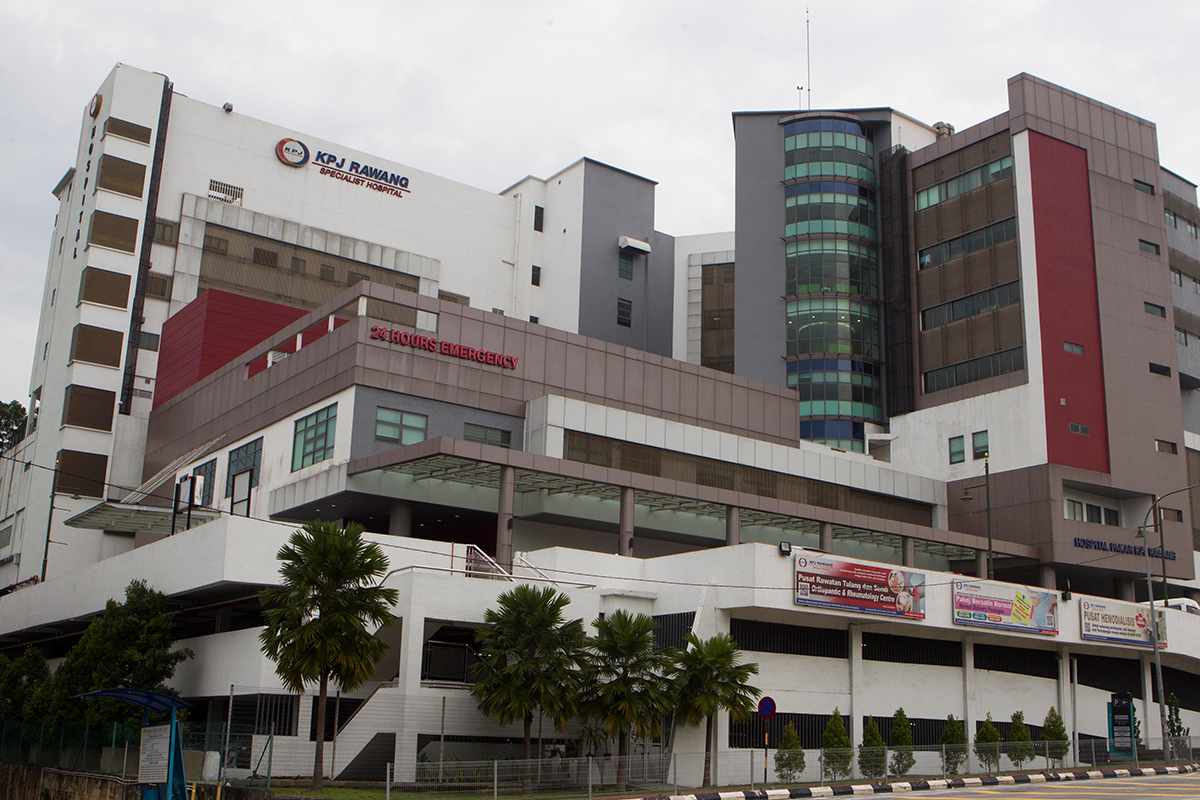
This article first appeared in The Edge Malaysia Weekly on September 12, 2022 - September 18, 2022
HAZMAN Hilmi Sallahuddin, chief investment officer (CIO) of Kumpulan Wang Persaraan Diperbadankan (KWAP), could be poached to helm the country’s largest private hospital operator, KPJ Healthcare Bhd, according to sources.
This follows the departure of Datuk Mohd Shukrie Mohd Salleh effective from Sept 7, after just five months as managing director (MD) of KPJ Healthcare, which is controlled by Johor Corp (JCorp).
Syukrie, 48, said he had resigned “to pursue other opportunities”.
Prior to KWAP, Hazman, 41, was MD of Damansara Assets Sdn Bhd, which is a subsidiary of JCorp. He had a 12-year stint with Khazanah Nasional Bhd, where he served in various roles across the organisation, including as senior vice-president of Khazanah Europe Investment Ltd, based in London.
“Hazman has been offered the position as KPJ Healthcare’s managing director. It is not a surprise considering his past experience with the JCorp group,” a source says.
He joined KWAP earlier this year as CIO, a position that had been vacant for more than a year.
JCorp owns a 45.2% stake in KPJ Healthcare, followed by the Employees Provident Fund (12.17%), Waqaf An-Nur Corp Bhd (12.17%) and KWAP (5.4%).
With Shukrie’s departure, chief financial officer Norhaizam Mohammad assumed the role of officer in charge.
This changing of the guard will be the third at KPJ Healthcare, which over the past two years has seen two MDs come and go — Shukrie and Ahmad Shahizam Mohd Shariff.
Ahmad Shahizam was appointed head honcho of the group in June 2020, and resigned less than nine months later in March 2021. He was CEO of Pantai Holdings Bhd from July 2014 to June 2017 and chief corporate officer at IHH Healthcare Bhd from July to December 2017.
KPJ Healthcare, which owns 28 hospitals throughout Malaysia, has seen its share price decline since the start of the year, falling more than 22% to 84.5 sen at Friday’s close, giving it a market capitalisation of RM3.67 billion.
In the past, the healthcare group has been a privatisation target, as reported by The Edge. Quoting sources, it was reported that JCorp and private equity fund TPG were submitting a proposal to the KPJ Healthcare board to take the healthcare group private in an exercise that valued it at up to RM5.4 billion.
JCorp had declined to comment on the matter at the time. The privatisation did not pan out, putting a dampener on KPJ Healthcare’s share price.
It is worth nothing that the healthcare group has seen its earnings improve this year. For the first half of FY2022 ended June 30, KPJ Healthcare’s net profit more than doubled to RM49.29 million, from RM19.93 million a year earlier, on the back of higher revenue of RM1.36 billion compared with RM1.24 billion previously.
Analysts appear to have mixed views on the counter, with seven research houses having a “buy” call, and another seven calling a “hold”.
Some expect KPJ Healthcare to see better earnings growth in the coming quarters on the back of health tourism, with the opening-up of the borders, and recovery in patient volume.
Some reckon that its new hospitals, which are still in gestation, will have an impact on its earnings.
KPJ Healthcare unveiled the latest addition in its network of hospitals, KPJ Damansara Specialist Hospital 2 (DSH 2), on Sept 1.
CGS-CIMB Research estimates “gestation losses” of RM70 million from DSH 2 this year, which will be offset by higher revenue contribution.
“We see total revenue rising further quarter on quarter in the third and fourth quarters this year, as KPJ Healthcare said the group’s blended bed occupancy rate (BOR) had continued to improve and surpassed 60% in July to August, with some of its hospitals currently having BOR in excess of 70%.
“This should help improve the profitability of its loss-making hospitals over time; it hopes to have three of them to turn around to Ebitda [earnings before interest, taxes, depreciation and amortisation] profitability by year-end,” the research house says in a recent note to clients.
KPJ Healthcare raised a RM3 billion sukuk in June, which the company says is to “rebalance its capital and finance future expansion”.
As at June 30, the group had RM1.92 billion in debt, of which 44% is short term, while its cash stood at RM330 million.
Save by subscribing to us for your print and/or digital copy.
P/S: The Edge is also available on Apple's AppStore and Androids' Google Play.